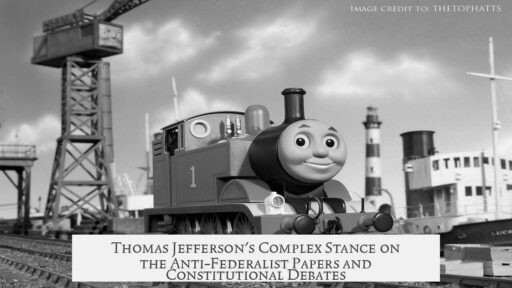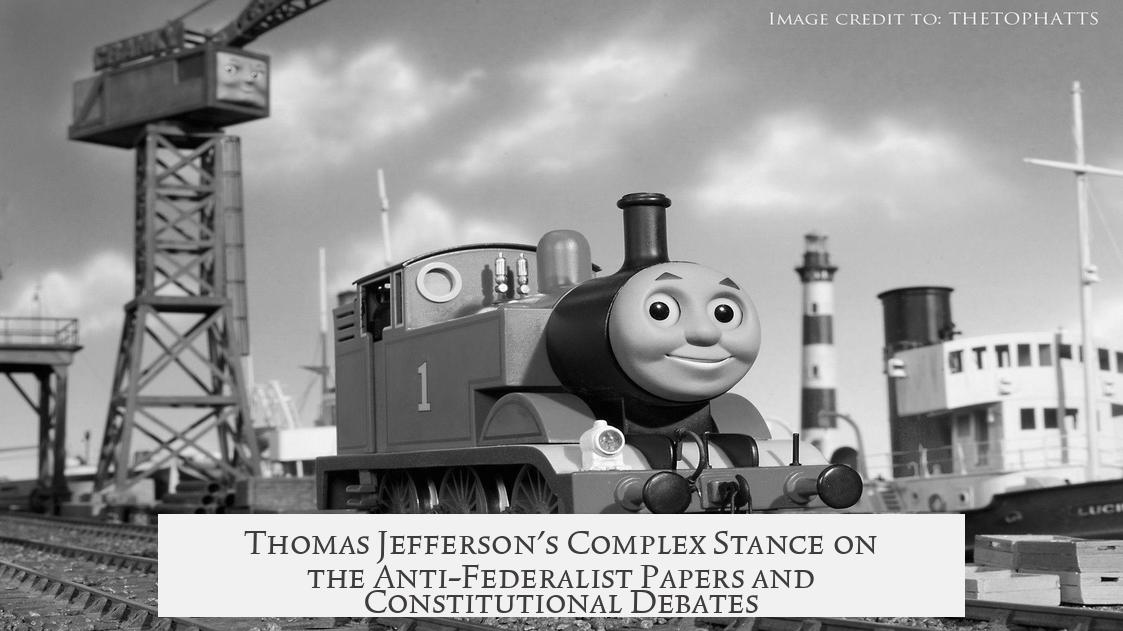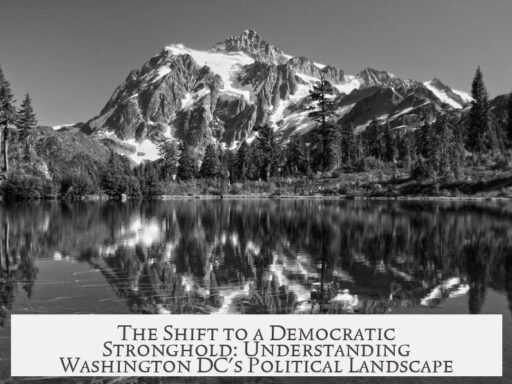Thomas Jefferson was not an Anti-Federalist, although he expressed concerns about certain elements of the Constitution, particularly the absence of a Bill of Rights and the lack of term limits. His views represent a nuanced position rather than outright opposition to the Constitution’s ratification.

Jefferson’s disapproval centered on the Constitution’s failure to guarantee individual rights explicitly. In a letter to James Madison from December 1787, Jefferson highlighted the need for a Bill of Rights to protect citizens. He also supported setting limits on terms for elected officials to prevent concentration of power.
Despite these critiques, Jefferson appreciated the Constitution’s major structural improvements over the Articles of Confederation. He valued the new federal system that reduced reliance on states, the establishment of separate legislative, executive, and judicial branches, and especially the Great Compromise. The compromise provided proportional representation in the House of Representatives and equal representation in the Senate, an arrangement Jefferson found favorable.

Jefferson’s role during the constitutional debates was limited by his physical absence. At the time, he was serving as the American minister in Paris, making participation in the intense domestic debate impractical. The Federalist Papers, a key advocacy effort, were written largely by Alexander Hamilton, James Madison, and John Jay. Jefferson left no evidence of direct involvement in these writings, and historians regard it as unlikely that he contributed anonymously.
Later in his career, Jefferson opposed the Federalist Party of the 1790s, which was distinct from the Federalists of the 1787–1788 constitutional debates. Political alliances at that time shifted significantly. Members of both the original Federalist and Anti-Federalist groups became involved in different political parties, including Jefferson’s Democratic-Republican Party. Hence, the later party conflicts reflected new issues rather than continuations of the constitutional ratification disputes.

- Jefferson was not an Anti-Federalist but advocated for constitutional amendments like the Bill of Rights.
- He admired the Constitution’s structural innovations and the Great Compromise.
- He did not participate in the Constitution debates due to his assignment in France.
- Later political party battles involved different groups than those in 1787–88.
Thomas Jefferson & Anti-Federalist Papers: Unpacking the Truth
So, was Thomas Jefferson an Anti-Federalist who opposed the US Constitution? The simple answer is no. But let’s dig deeper. Jefferson’s relationship with the Constitution is more nuanced than a straight “for or against” stance.

Jefferson did have reservations about the Constitution, but he never called for rejecting it outright. He respected the new framework but quickly noticed its shortcomings. This perspective often gets lost in history’s hustle and bustle. So, what exactly did Jefferson think, and how does it connect to the famed Anti-Federalist Papers?
Jefferson: Not an Anti-Federalist, But Not a Blind Supporter Either

Despite common myths, Jefferson did not belong to the camp of Anti-Federalists — those who wanted to block the Constitution’s ratification.
In a December 1787 letter to James Madison, Jefferson voiced nagging concerns. His biggest gripe? The Constitution lacked a Bill of Rights—a critical omission in his view. He believed protecting individual freedoms had to be front and center.

Jefferson was also a supporter of term limits, something the Constitution didn’t explicitly provide. He feared power might become too concentrated without them.
But don’t mistake him for a Constitution-basher. He appreciated the revolutionary shift the Constitution represented. The system no longer depending solely on states was a big plus for Jefferson.
He applauded the creation of three branches of government, each with distinct powers: legislative, executive, and judicial.
And the Great Compromise? That clever solution to representation questions really caught Jefferson’s eye. Having the House based on state population and the Senate giving equal representation to each state balanced power in a way he found smart and fair.
Why Didn’t Jefferson Join the Constitution Debates?
Here’s a fun fact: Jefferson wasn’t even in the United States during the Constitution debates. He was busy in Paris, negotiating matters as the US ambassador to France. This made active participation impossible.
The original Federalist Papers, a set of essays defending the Constitution, were a whirlwind of intellectual activity mainly by Hamilton, Madison, and Jay. Given the speed and intensity, it would have required a local, immediate approach to join these debates effectively.
Although writing a secret anonymous essay was possible from afar, no evidence shows Jefferson did this. In fact, the records suggest he stayed clear from those political scribbles during that period.
Federalist vs. Anti-Federalist: Not Who You Think
The political landscape shifted after 1788. Jefferson did fight the Federalist Party in the 1790s but here’s the catch: that party wasn’t the same group from the Constitution’s ratification time. The Federalist label applies to two somewhat different groups separated by years and issues.
Some Anti-Federalists from 1787 actually joined the Federalist Party later. Meanwhile, some original Federalists ended up in Jefferson’s Democratic-Republican Party. Their battles in the 1790s weren’t simply echoes of the Constitution fight; they tackled entirely different concerns like economic policies and foreign alliances.
What Can We Learn About Jefferson’s Role Today?
Jefferson’s stance shows that history isn’t black and white. He was neither a diehard supporter nor a fiery opponent of the Constitution in 1787-1788. He had meaningful critiques and embraced key innovations in the design.
His insistence on a Bill of Rights influenced the first ten amendments, underscoring his legacy in shaping American freedoms.
Jefferson’s story also reminds us to be careful when lumping historical figures into modern categories. The labels “Federalist” and “Anti-Federalist” have evolved over time in confusing ways.
So next time you think about Jefferson and the Anti-Federalist Papers, remember: he stands apart. Not an Anti-Federalist in the classic sense, but a thoughtful skeptic and reformer who helped strengthen America’s foundation.
Wrapping Up with Some Food for Thought
- How would Jefferson react to today’s political parties, given his nuanced views?
- Did his absence during the Constitution debates affect the document’s final form positively or negatively?
- Can his early calls for term limits and a Bill of Rights inspire current efforts to reform government?
Jefferson’s mixed feelings on the Constitution and his absence during its debates provide a fascinating story that defies simple categories. His warnings and endorsements alike shaped the United States in profound ways.
Ultimately, understanding Jefferson’s position helps us appreciate the Constitution’s complexity and the spirited conversations that birthed it. History isn’t just about who shouted the loudest but about those who thoughtfully questioned and helped build lasting solutions.




